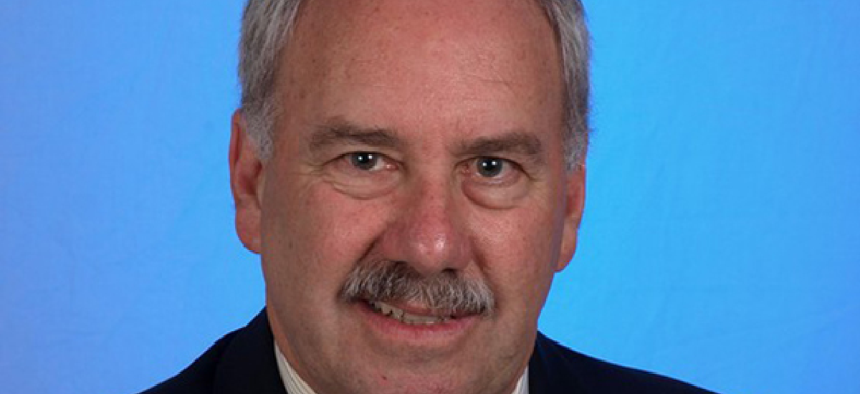The Power of Acronyms in Rebranding

Anyone who deals with nonprofits is used to working with a bewildering alphabet soup of acronyms—OPWDD, OASAS, OMH, etc. However, we have found that there are times when an acronym is a good thing, especially when nonprofits need to rebrand themselves when their mission or scope of services changes.
For example, we have a client that was established in 1952 to serve children with epilepsy and was thus called the Epilepsy Foundation of Long Island. Over the years, they expanded to also serve individuals with developmental disabilities and mental health challenges.
In 2013, they changed their name to EPIC Long Island, an acronym for Extraordinary People in Care, to reflect the broader range of programs and populations served. “We could have done this a long time ago,” said Tom Hopkins, EPIC’s CEO and executive director. “Having epilepsy in our name may have pushed away some of the very people who could benefit from our services. I’m sure a lot of people were bypassing us and we didn’t even know it.”
Although EPIC changed their name shortly before they became our client, we helped them spread the word by including a brief paragraph about EPIC’s new name, broader range of programs and additional populations served in all their marketing materials—press releases, news articles, awards and media interviews. As EPIC’s story became more well-known, we used the phrase “EPIC LI, formerly known as …” Now, they simply go by the name EPIC LI.
“In the past, if a parent was looking for a local provider for a child with mental or developmental disabilities, they’d see the name Epilepsy Foundation and assume we couldn’t help them,” Hopkins said. “With the name EPIC, they’re more likely to give us a call.”
Similarly, another client, founded in 1950 as United Cerebral Palsy of Queens, had expanded to serve individuals with autism, Down syndrome, seizure disorders and brain injuries. By 2001, less than a third of the people they served had cerebral palsy, so they changed their name to Queens Centers for Progress. We encouraged the agency to use the acronym QCP in their marketing materials, as it was shorter, catchier and easier to remember. And the client is pleased with our recommended rebranding strategy.
Sometimes an acronym can take on a meaning of its own, apart from its original intention. The Association for Special Children was founded in 1966 to provide services for young children with Down syndrome. Over time, as with EPIC and QCP, the agency expanded to include a wider range of programs, age groups and populations, including those with autism and other developmental and genetic-based disabilities. In 1999, they changed their name to Association for Children with Down Syndrome, but are legally known as ACDS, and modified their tagline to, “Serving children and adults with Down syndrome, autism, and other developmental disabilities.” However, to the public and those they serve, ACDS is simply their name, and few people realize what the acronym actually stands for.
For others, the meaning of an acronym can change over time. Our client IRI was founded in 1984 by parents who wanted to create homes for their loved ones and others with multiple types of developmental disabilities, and was originally known as Independence Residences, Inc. Over the past three decades, the agency grew to include a robust network of supports including crisis intervention, day habilitation, employment services, family support, service coordination and, most recently, creative individualized living and self-directed work opportunities.
“We want families, sister agencies, the government and the general public to be aware that we have grown, and that our former name was really a misnomer,” says Executive Director Raymond J. DeNatale. “We discussed it with our board of directors, executive administration, and Marketing Works, and decided to change our name to IRI.” The agency plans to grow through affiliations and collaborations with other nonprofit agencies that share a common mission and will consolidate offices with their affiliate Queens Parent Resource Center in September.
For some clients, it’s better to rebrand away from an acronym, as is the case of client Lifespire, a leading New York City-based nonprofit that provides a full range of services to adults with developmental disabilities. Founded in 1951 as the Association for Children with Retarded Mental Development, or ACRMD, the board of directors decided in 2000, long before they became our client, to change the name to Lifespire to reflect the organization’s mission of “helping individuals reach life’s aspirations.”
Ron Gold is the president and CEO of Marketing Works PR, which offers an extensive range of branding, public relations, event management, marketing and community relations services to nonprofits, especially those that lack the resources to perform these functions internally. He also founded The Nonprofit Voice weekly radio show that discusses issues affecting the special needs and behavioral communities of Long Island. The show is broadcast live on Saturday morning on Long Island News Radio 103.9 FM.
NEXT STORY: Love IT or List IT: Is it time for new software?